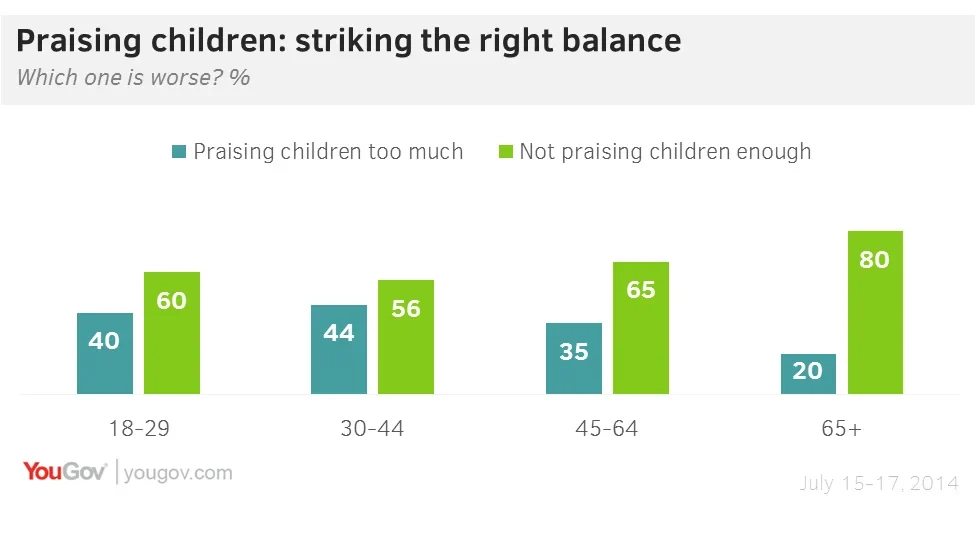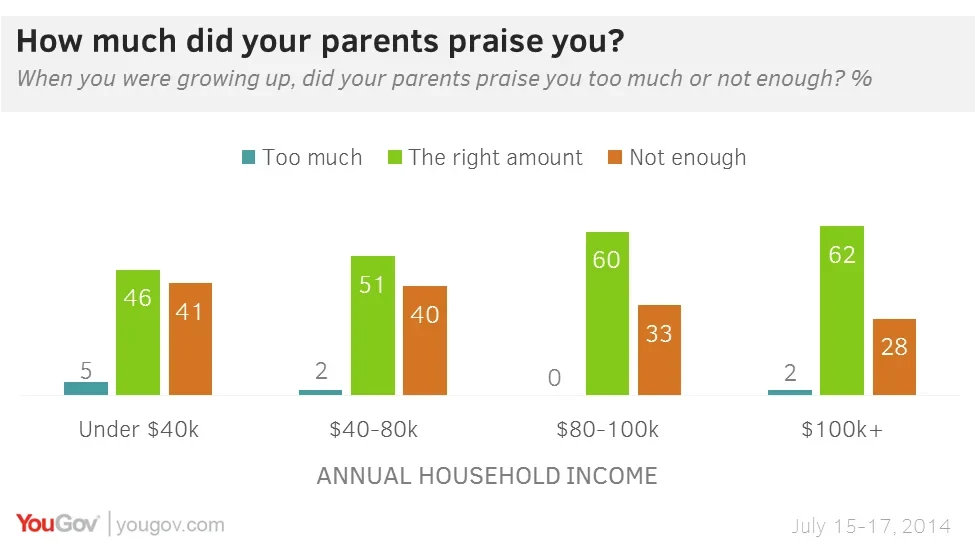Most people say that it's worse to give a child too little praise rather than too much praise, while people with lower incomes are much more likely to say their parents didn't praise them enough
Parenting is one of the more difficult challenges most of us will face in life, but even beyond the humdrum concerns of bedtime tantrums and changing diapers, parents agonize over how to ensure their child becomes a successful, well-adjusted adult. Parents today are often effusive in praising the children, particularly in comparison to the parents of older generations. This might be aimed at encouraging a healthy self-esteem among children, but could excessive praise raise a generation of entitled brats? There is no consensus on what the best approach is, though a recent study did show that inflated praise has a positive impact on children with high self-esteem, and a negative impact on children with low self-esteem.
The latest research from YouGov shows that most Americans (64%) say that it is worse to not praise a child enough rather than to praise a child too much (36%). Older Americans in particular are more likely to err on the side of too much praise, with 80% saying that it is worse to not praise a child enough. 30-44 year-olds are the most likely to say that it is worse to praise a child too much (44%).

The lower someone's household income is, the more likely you are to say that your parents didn't praise you enough as a child. 41% of people in households with incomes under $40,000 a year say that they didn't receive enough praise as children, compared to 28% of people in households with an income over $100,000.

Democrats (40%) are also noticeably more likely than Republicans (29%) to say that they didn't receive enough praise from their parents.
Full poll results can be found here.
Image: Getty









